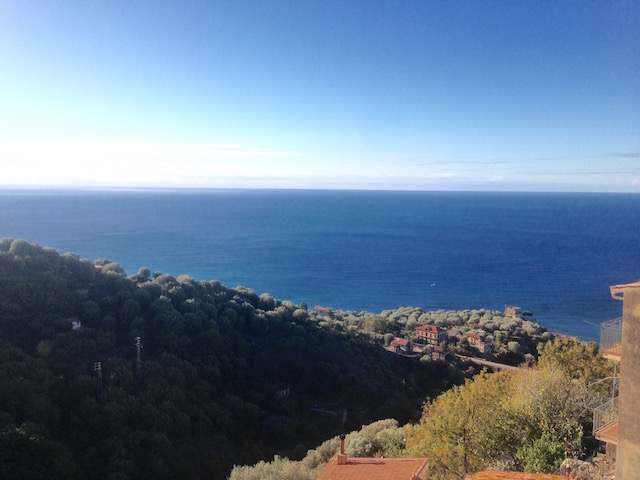Digesting a rich meal takes much longer than the time it takes us to consume it.
I was doing a bit of digesting of this “big meal”—my six months of traveling—during an early morning walk last week.
As I kept on walking, my mind was doing some scanning: it was searching for “the defining moments,” the times that had “packed a wallop,” and taught me a few things. There was a nice collection to choose from: bright shiny hours, strange places, exotic people, hypnotizing music, and deep conversations.
But something about my feet’s rhythm on the sidewalk urged me to move past all these colorful memories and to land on another one, a memory which is much more quiet. Let me share it with you:
I’m sitting on my tiny balcony overlooking the Mediterranean, in a small hilltop village in Southern Italy. Warm sun on my face, my panties and a faded T-shirt drying in the wind, and nothing for me to do. No church to visit, no language to learn, no one expecting me anywhere, no problem to solve, no meal to prepare. Not a damn thing.
For a while, it feels good and peaceful. Then it starts to itch. Nothing for my busyness-worshipping mind to bite into. Nothing to fix. Just a time for being, resting.
Often, I took myself on a long walk in the olive trees or along the sea, all the way to the train station. Sometimes I came home and meditated or took a nap or both.
But now, there was no one to talk to. Just me, my breath, and my hungry mind.
During that month, I barely wrote. Most of the time, the only people I talked with were my coaching clients and a friend or two on the phone. I ate very simple food: a bit of mozzarella, some prosciutto, a little basil from the garden, and a few olives. A juicy pomegranate for dessert. I barely listened to music.
A month later, when I quietly left the village and got on a train for Rome, I felt as though nothing had happened during my time there. It was as though I had pressed “pause” and could finally hit “play” once I got to the bustling, Vespa whirring city.
So why is it that months later I think of this time as possibly being the most important part of my trip? Why is it that deep down I know that this time is where the most lasting changes occurred?
I have a few theories why:
The Rest.
The rest from the “shoulds.” The rest that came from listening to my own needs. After decades of single parenting, business building, and metaphorical bullet dodging, the sheer “nothingness” was immensely restful to my nervous system.
Reacquainting with the Self.
I used to think that left on my own, I would write brilliantly, I would read voraciously, I would learn…something. Now I know that whether I write, read, or learn anything, it has very little to do with circumstances and all to do with me and my choices. I love knowing that. I also know that my family matters to me more than I ever realized.
The Preparation.
The deep rest allowed me to be ready when life rang the bell to signal a new, more demanding chapter. I had slept plenty, I had been quiet plenty, and I had gathered a nice big batch of energy reserves. This came in handy for the next stage.
So yes—that strangely quiet course might have been the most powerful part of my huge meal. Pressing “pause” might have had the most impact.
This is a lesson I hope not to forget.
Today, I invite you to press “pause” and allow the process of resting, self-reacquaintance, and preparation to do its thing.
Whether it is four minutes with your eyes closed sitting in your car after work, an hour with your phone turned off in the middle of the day, or a weekend of solitude, you may find—as I continue to—that these unglamorous, seemingly useless moments are actually our most effective allies.
I also invite you, if your life has pressed “pause” and you are finding yourself impatient with the pace of this chapter, to consider that this current tempo might be exactly what you need, and that only in the rearview mirror will you be able to see its true gifts.
Author: Laura Lavigne
Image: Author’s Own
Editor: Sara Kärpänen
Copy editor: Nicole Cameron


 Share on bsky
Share on bsky





Read 0 comments and reply